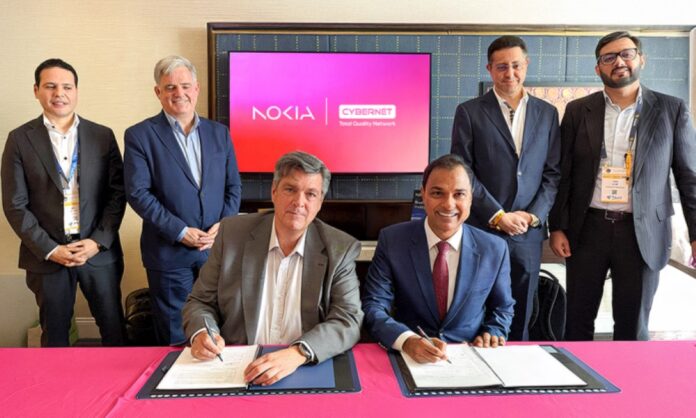Cybernet in collaboration with Nokia is laying the groundwork for what could become one of Pakistan’s most significant telecommunications upgrades in recent years: a nationwide, high-capacity fiber optic network designed to connect over two dozen cities and handle exponential growth in data traffic.
Using advanced optical technology from Nokia, the new infrastructure will deliver speeds of up to 1.2 terabits per second on a single wavelength—far exceeding the capacity of typical networks. For Pakistan’s expanding digital economy, this means stronger foundations for e-commerce, tech startups, cloud-based businesses, and digital public services.
The backbone will support everything from large enterprise operations and government institutions to home users relying on Cybernet’s consumer service, StormFiber. It will also improve cross-border connectivity, providing international telecom operators with more efficient routes through Pakistan and into Central Asia.
Cybernet’s deployment uses Nokia’s 1830 GX platform, which is built for high performance and efficient power usage. The goal is to enable rapid, low-latency communication across long distances—critical for everything from video conferencing to real-time data exchange.
This development marks a significant step toward building a more connected Pakistan, not just for urban centers but also for underserved regions that need faster, more reliable internet access to grow in today’s digital-first world.


























